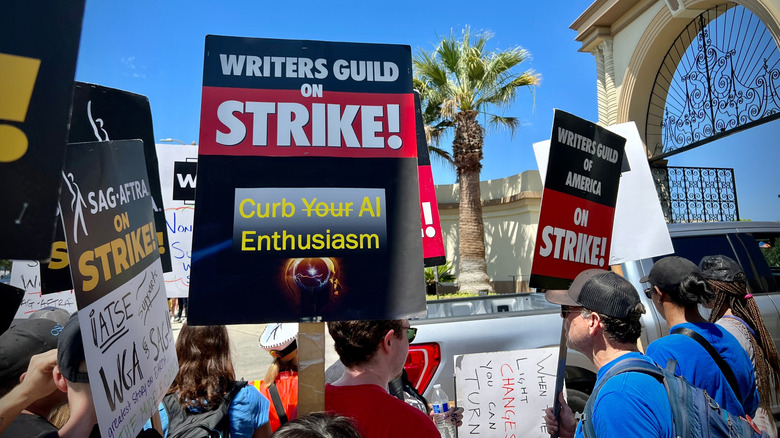Will AI Actually Start Taking Jobs? Here's What We Know
Artificial Intelligence (AI) has seen an overwhelming boom in recent years, often with public backlash following. Software using AI claims to have human-like intelligence, and companies are scrambling to jump on board this new technology. Microsoft is pushing its AI Copilot into multiple aspects of its new Windows 11. Google's AI Overviews for search results are seen as helpful by some and annoying by others. Some people are fascinated by new AI technology and use it daily. However, others see it as unreliable, inaccurate, and a cheap imitation of human capabilities. Hanging over all opinions is also the question of whether AI can ever become conscious, and what that means for the future of humanity.
With companies integrating AI into operations, one major concern is the impact it will have on the job market for humans. People fear being replaced by AI and having nowhere to go. The loss of income with no available human jobs is a high source of stress that is slowly spreading around the world.
Will AI actually start taking human jobs? Unfortunately for employees, it already has. Many companies have laid off employees in favor of being an AI-first business. However, this has not always turned out the way the companies anticipated, and worried workers can still have hope for things to change course.
Where AI has taken over human jobs
Companies see AI as a way to reduce the cost of human labor and boost efficiency so they can be more profitable. Some positions being replaced include customer service jobs, analytical jobs, graphic design jobs, and positions in the technology field. It is especially bad for young workers who haven't yet had time to develop specialized skillsets to help them stand out. Some people are even turning to ChatGPT to replace their therapists, though professionals warn this is a bad idea.
Microsoft Corporation feels human interaction isn't needed when it comes to support operations. It laid off 6,000 workers in May 2025, with most of them being programmers. PayPal has launched PayPal Assistant to replace its customer service workers with AI. It seems harder than ever to reach an actual human when you need customer service help these days.
Amazon's CEO, Andy Jassy, released a statement to workers in June 2025 that focused on how proud he is of their AI initiatives. After 14 paragraphs of this, he then dropped the bomb that they will need fewer workers now and will be laying off across the next few years. Fiverr's CEO and founder, Micha Kaufman, said in a LinkedIn post in September 2025 that his company is adopting an AI-first mindset. Due to this, it will be laying off 250 workers.
Humans still prove their value as workers
Jan Hatzius is Goldman Sachs' Chief Economist and Head of Global Investment Research. He believes that though AI will replace some jobs, it will actually open up opportunities for new jobs. In a statement recorded by CNBC News, he said, "We remain skeptical that AI will lead to large employment reductions over the next decade, primarily because AI-related innovation will create new work opportunities that help offset job losses from automation."
Companies are also learning that their customers don't necessarily want human interaction replaced by AI. Taco Bell tried AI in the drive-thru, which did not go over well. The language app Duolingo upset users by saying it was replacing its contract workers to be an AI-first company. Now, the company's tone has changed after the backlash, emphasizing that it hasn't reduced its hiring operations and that AI actually cannot replace humans.
Fintech company Klarna laid off hundreds of customer service workers in favor of AI. Now that the company has also backtracked. It is promising that humans will always be there for customers in need, that high-quality human customer support should be the priority, and that focusing too much on cutting costs results in a lower quality of company offerings. All this gives hope to a worried public that the AI boom may fizzle out, with it being there to assist in operations, rather than take them over.


